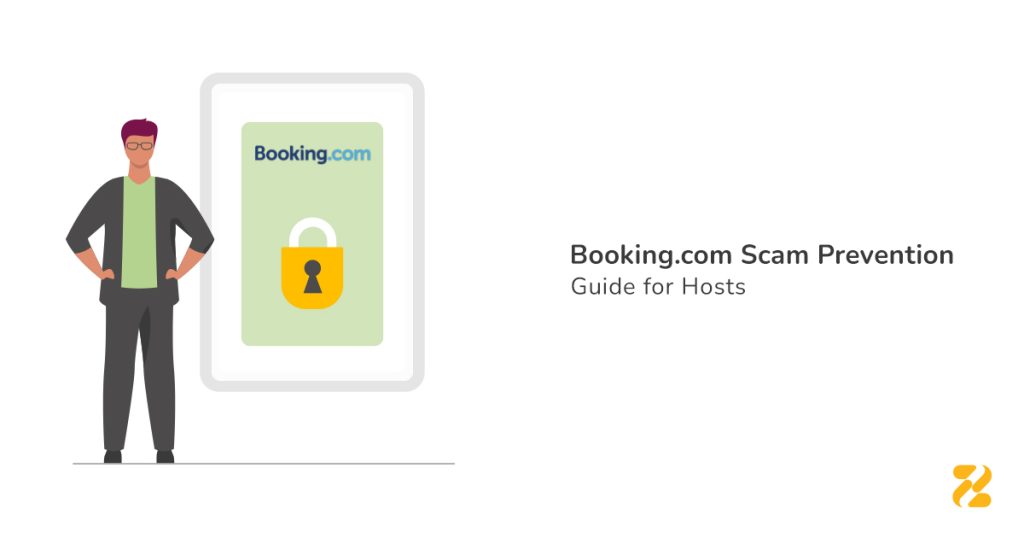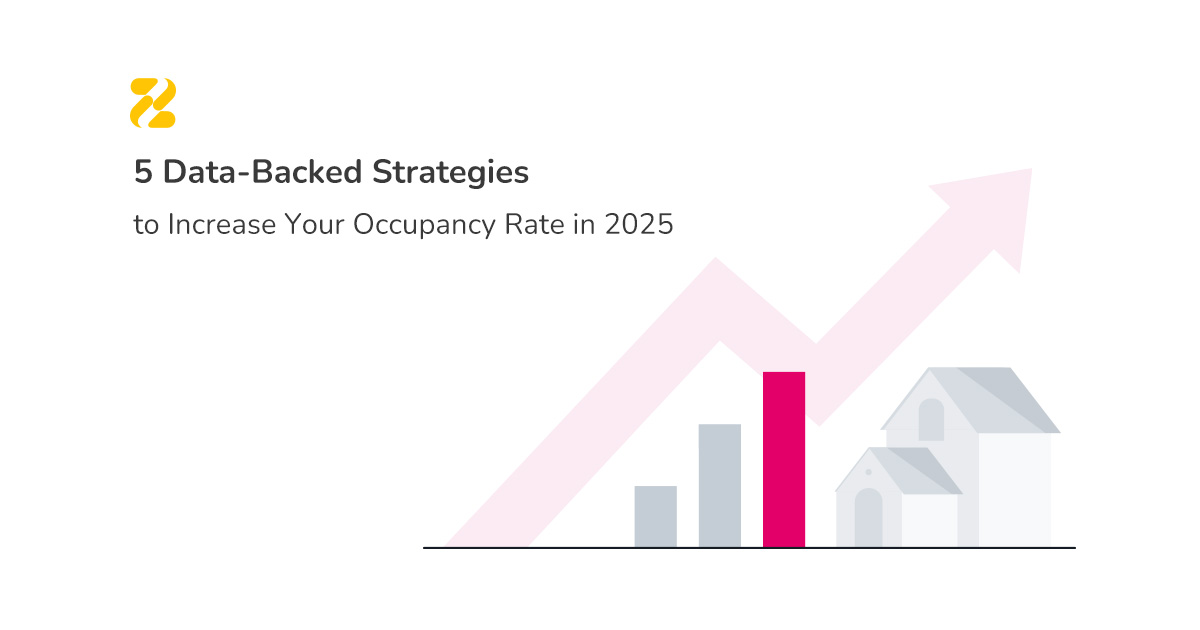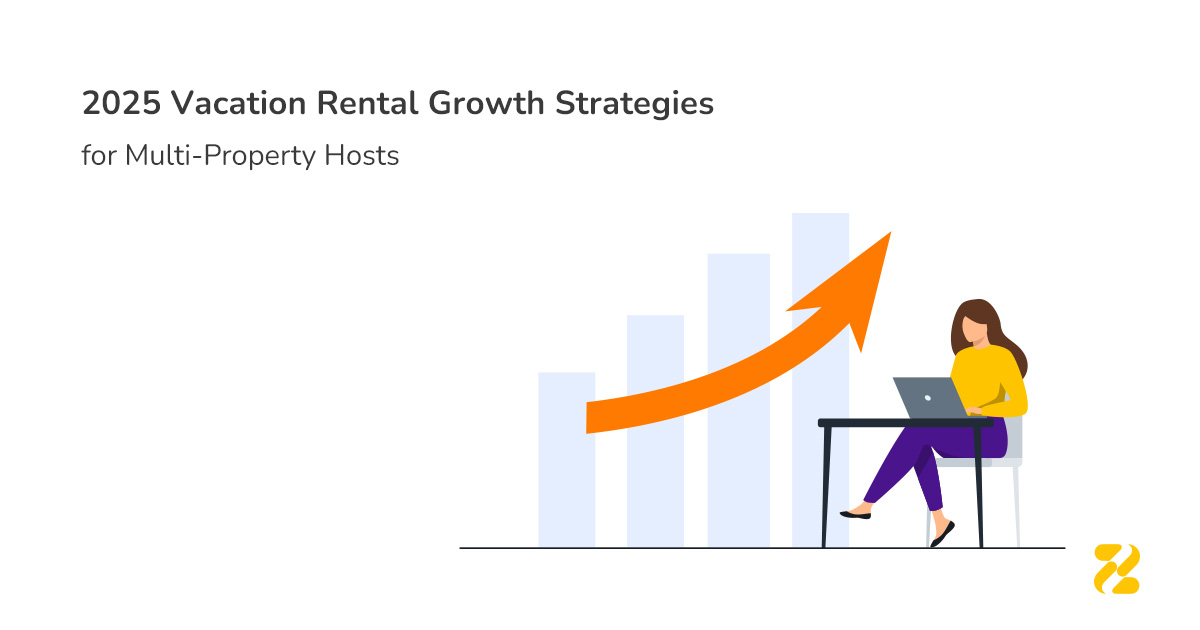As a Booking.com host, your guests’ safety and enjoyment are top priorities. However, there are crafty scammers lurking in the shadows, poised to exploit any vulnerability they may discover. So, you need to protect your guests and property by identifying Booking.com scams and taking steps to prevent them.
In this blog post, we’ll talk about different types of Booking.com scams and what to do if you get scammed. We will also provide some additional tips to keep your account secure.
Table of Contents
Booking.com Scams: Common Threats and Red Flags

Booking.com, like many online sites, can be vulnerable to various scams. Hosts need to be vigilant and identify common threats and red flags to protect themselves against potential fraud. Here are some of the warning signs associated with the Booking.com scam:
Phishing Emails
One of the most important red flags to be aware of is receiving emails asking for personal or financial information. These emails often look credible, but are often phishing attempts that target the recipient’s collection of sensitive information. It is important to identify any unsolicited email that falls into this category.
The main risk associated with such emails is that fraudsters impersonate Booking.com to trick recipients into revealing personal information. These fraudulent emails can use a variety of deceptive tactics to make them seem relevant, including Booking.com’s branding, logos, and even a sender email address that looks like an authentic official one.
Overpayment Scams
These scams often involve guests sending more money than the required booking amount. Hosts must recognise this red flag to prevent falling victim to fraudulent transactions that can result in financial loss.
In many cases, this excess payment is not just a simple mistake; it is a deliberate act by the scammer. The guest may claim that they made an error, or they might offer a seemingly plausible explanation for the overpayment. But, their primary goal is to extract refunds or initiate chargebacks for extra payments they made.
Last-Minute Cancellations
A significant red flag for hosts is the recurrence of last-minute cancellations, particularly when they originate from the same guest or a series of bookings with short notice and subsequent cancellations. While last-minute cancellations can sometimes be legitimate due to unforeseen circumstances, frequent occurrences should raise suspicions.
Fraudsters can book accommodation with the intention of cancelling at the last minute for a variety of reasons. However, their primary objective is to issue a refund.
Non-standard Payment Methods
While many guests use traditional payment methods, such as credit cards or online payment, there are cases where hosts receive unconventional methods of payment requests.
Scammers can use these other payment methods to avoid detection and accountability. When they pay via cryptocurrency or wire transfer, hosts have a much harder time recovering money in the event of a dispute or fraudulent activity.
Unconfirmed or Suspicious Profiles
Hosts on booking platforms like Booking.com rely on accurate guest information to ensure a safe experience for both parties. Property managers should be alert and wary of potential warning signs when dealing with unverifiable information. Suspicious profiles often contain incomplete or ambiguous demographic information, such as names, contact information, or missing credentials that can be verified. Fraudsters can use this information to engage in fraudulent activity, potentially costing hosts money and disrupting their business.
Forcing to Communicate outside the Platform
Maintaining communication within the confines of a trusted booking platform is crucial for hosts to ensure transparency, security, and accountability. However, they can be confronted by guests who try to pull connections off the platform. Some guests insist on communicating with hosts through personal email addresses, phone numbers, or messaging apps. They may be attempting to move communication away from the booking platform to avoid detection.
Inconsistent Information
Hosts may encounter guest information that does not match the information provided during booking. This may include discrepancies in name, contact information, order preferences, or other relevant data.
Scammers can deliberately provide conflicting information to mislead hosts and buy themselves time to conduct fraudulent activities.
How to Prevent Booking.com Scams

There are several things you can do to prevent Booking.com scams, such as:
Communicate with Guests Regularly
It’s important to have clear and reliable communication channels with guests from the moment their booking is confirmed. Be sure to keep in touch with them before and during their stay. Not only does this help address any concerns quickly, but it also provides open communication that can deter potential scammers.
Use Booking.com’s Messaging System
Using the listing platform’s messaging system as the primary means of communication is a smart move. It allows you to keep complete and easily accessible records of all interactions with guests. This record can serve as invaluable evidence in the event of a dispute or misunderstanding and help protect hosts and guests.
Verify Guest Information
Careful review of guest data is essential to maximise security and ensure a smooth experience. Requesting guests to endorse your terms and conditions is a vital step in setting expectations. Additionally, ask them to submit a valid identification document before releasing check-in instructions. This rigorous verification process bolsters your confidence in their authenticity and safeguards against potential issues or unauthorised guests.
Avoid Non-standard Payment Methods
To protect yourself from potential scams, it’s crucial to avoid non-standard payment methods. Stick to Booking.com’s approved payment methods as they offer some protection in the event of a dispute. Be cautious if guests ask for alternative payment methods, such as prepaid gift cards or cryptocurrency, as these are often associated with fraudulent activity.
Be Familiar with the Booking.com Policies
Knowing relevant policies will allow you to spot Booking.com scams faster. Once you’re familiar with their guidelines and procedures, you’ll have a clear roadmap outlining the steps you should take if you ever suspect being targeted by a scammer.
Review Your Listing and Security Procedures
Keep a close eye on your listings and security protocols to identify potential vulnerabilities that fraudsters can exploit. Make sure you conduct this assessment thoroughly. Once any gaps are identified, take immediate action to strengthen your asset’s security systems and screening procedures.
Trust Your Instincts
If something doesn’t feel quite right or seems too good to be true, it’s important to take precautions and be prepared to cancel your booking. Often, your gut feeling can be your first line of defence against possible scams.
What to Do If Your Booking.com Got Scammed

If you believe you have been scammed, it is important to act immediately to minimise the risk of losses.
Contact Booking.com
Start by contacting Booking.com’s partner support as soon as you suspect fraud. You can reach them through the platform’s support channel or call their customer service number. Give them all the information about the suspected Booking.com scams.
Document Everything
Keep a record of all communications, including messages, emails and phone calls, with a guest involved in a suspected fraud. These forms will be important when reporting an incident to Booking.com and, if necessary, to law enforcement.
Block or Flag the Guest
It is wise to block or flag a guest’s profile on Booking.com to prevent further communication or bookings from them. This can help protect you from future fraud attempts.
Check Your Payment Accounts
Review your payment account to see if unauthorised transactions occurred. If you suspect a fraudulent payment, contact your payment processor immediately to report the issue and start a dispute.
Review Your Cancellation Policy
If the fraud was related to booking cancellation, review your cancellation policy and Booking.com policies to determine the appropriate procedure for issuing a penalty refund.
Monitor Your Property
Be vigilant about the security of your property. If you have concerns about the guest’s access or intentions, consider changing access codes or locks, especially if you provided them in advance.
Preventing Booking.com scams and frauds on similar platforms is crucial for hosts to ensure the integrity of their business. While fraud can take many forms, acknowledging common red flags and implementing security measures can greatly reduce the risk of becoming a victim of fraudulent activity. Your active involvement in documenting and reporting the fraud is important to ensure a quick and effective resolution.
Image by pch.vector on FreepikCopy Printed items.




